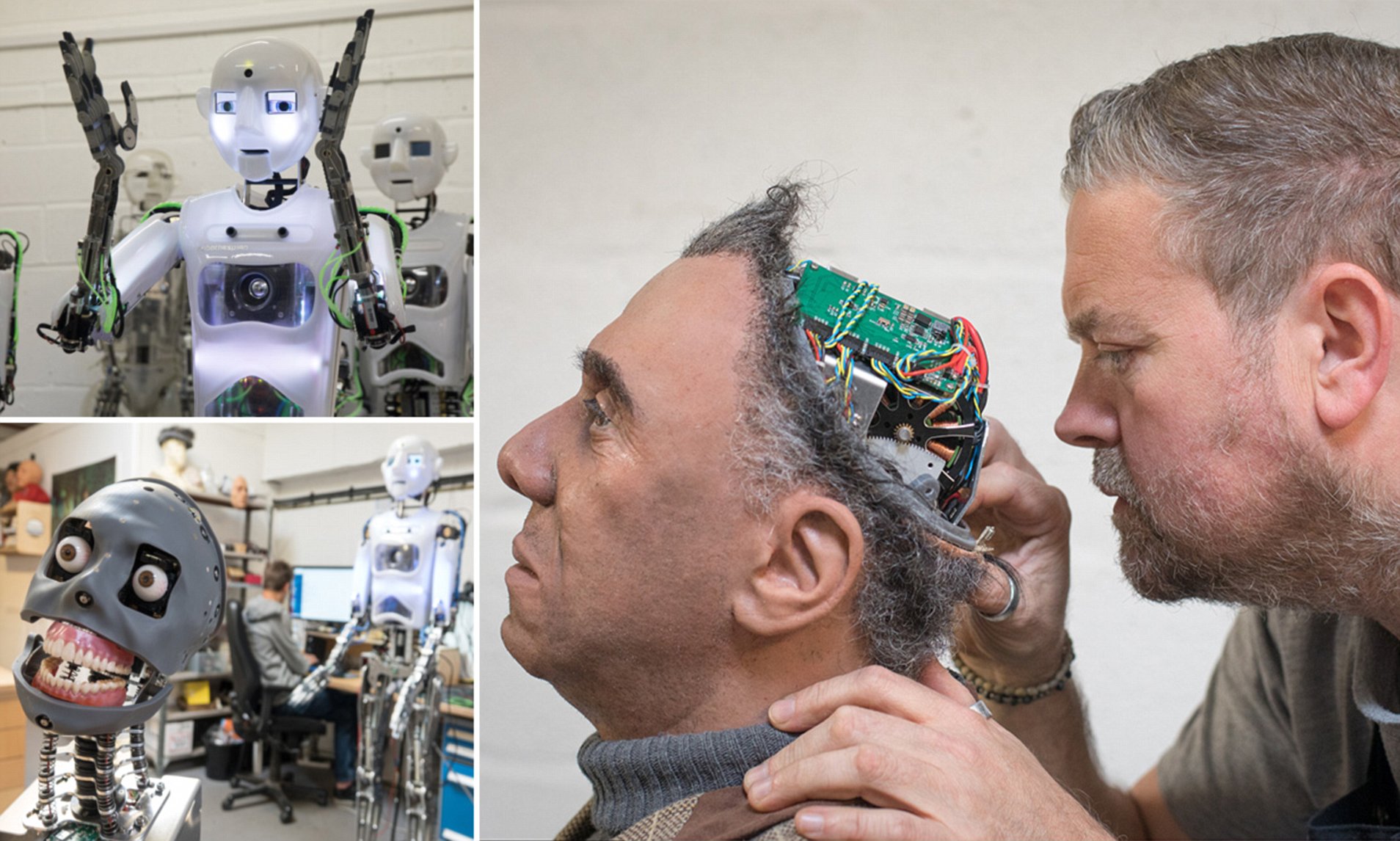
Founded in 2004, the company operating from an industrial unit in Penryn, near Falmouth, is a world leader in life sized commercially available humanoid robots.
With prices ranging from £9,500 to £59,000 (£13,000 to $80,000) the high-end robots are used for entertainment, information, education and research.
The company currently offers three commercially available products: RoboThespian, SociBot and the SociBot Mini.
Its top of the range android, the fully interactive and multilingual RoboThespian, has been sold and displayed around the world.
It even succeeded in giving a 15 minute long TEDx Talk.
In many places, it has been joined by the smaller SociBot robot at science centres, theme parks and visitor attraction.
Many academic and commercial research groups are also using the robots as research and development platforms.
Engineering Arts is also developing new robots.
It has been developing a range of lifelike bio-mechanical Mesmer robots that builds on the sensors and the extensive software framework already developed for RoboThespian.
Mesmer robots offer some of the smartest animatronics on the market, giving extensive interaction but can also move very smoothly, quietly and naturally too.
Developed using Engineered Arts own animation software 'Virtual Robot', Mesmer characters can be fictional, or faithful recreations of real-world people with accuracy possible to the last pore of finest of hairs.
In a collaboration with Madame Tussaud's wax works in Shanghai, the company created an extremely lifelike and animated version of the Jing Boran and Wuba, from the film Monster Hunt 2.
The RoboThespian is capable of walking without assistance
Last month, the company developed Fred, a one off automaton that frightened punters in a London pub.
The robot, described as 'indistinguishable from humans', was created as part of a stunt to promote TV Series Westworld.
The hyper-realistic robot, modelled to be an exact replica of London-based actor Tedroy Newell, sat down for a refreshing lager at The Prince Alfred pub in Maida Vale, in the west of the capital.
Engineering Arts built Fred in 12 weeks.
Fred's human-like interactions were controlled by Engineered Arts' telepresence system, which uses inbuilt sensors, cameras and microphones to track how people interact with the machine.
Fred was funded by streaming service Now TV to promote the return of dark science fiction show Westworld and was inspired by the show’s artificially intelligent 'hosts'.




